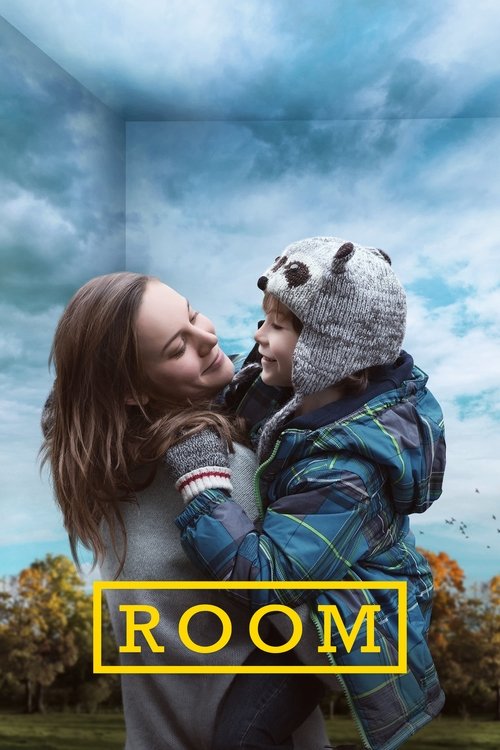
Ask Your Own Question
What is the plot?
Joy Newsome, a 24-year-old woman, lives in a cramped, squalid garden shed in Akron, Ohio, with her five-year-old son Jack. This confined space, which they call "Room," is their entire world. The only window is a skylight, and inside are the bare essentials: a bed, a toilet, a bathtub, a small kitchen area, a television, and a wardrobe where Jack sleeps. Jack was born in Room, the product of years of captivity and repeated sexual abuse by their captor, a man they call Old Nick. He abducted Joy seven years earlier and has kept her imprisoned ever since, raping her regularly while Jack sleeps, trying to maintain control over them both.
Jack's innocence is palpable; he believes Room is the whole world. Joy, despite her trauma and malnutrition, works tirelessly to protect his innocence and create a semblance of normalcy. She leads him through daily routines, like yoga exercises in the tiny bathroom and birthday celebrations, such as the modest fifth birthday cake she bakes for him. Jack is frustrated by the lack of candles, and when Joy tells him he turns six next year, he protests, "Maybe I'll ask Old Nick for candles next time," unaware of the grim reality behind their captivity.
Old Nick's presence looms darkly over their lives. He sleeps in the bed with Joy, and his abusive control is brutal but masked by the routine he imposes. When Joy confronts him or shows defiance, such as when she slaps him after he interacts with Jack unsupervised, Old Nick punishes them by cutting off heat and power, plunging Room into cold darkness during the fall. The cold and isolation intensify the tension and Joy's desperation.
Joy's mental state is fragile; she battles depression and the trauma of her captivity. She hides the truth of the outside world from Jack, but as he grows more curious, she realizes she must prepare him for escape. One day, she reveals to Jack that Room is not the entire world. Jack reacts with disbelief and fear, overwhelmed by the idea of a vast, unknown place beyond their walls. Joy tries to comfort him, saying, "There's a whole world out there, Jack. And we're going to find it."
Together, they devise a daring plan. Jack fakes a fever to convince Old Nick to take him outside for medical help. Joy teaches Jack to pretend to be dead, wrapped in a carpet, so that Old Nick will carry him out of Room. The plan is risky, but it's their only chance. When Old Nick drives away with Jack in the back of his truck, Jack waits for the right moment, then rolls out of the carpet and bolts, screaming for help. A passerby intervenes just as Old Nick tries to recapture him, forcing Old Nick to flee.
The police arrive and find Jack, confused and overwhelmed, but safe. Jack leads them back to Room, where Joy is still imprisoned. They rescue her, and Old Nick is arrested. The revelation of their captivity shocks the community and the authorities.
Joy and Jack are taken to a hospital for medical and psychological care. Joy reunites with her family, but the reunion is fraught with tension. Her parents, Nancy and Robert Newsome, have divorced during her seven years of absence. Nancy has moved on with a new partner, Leo, who is kind and patient with Jack. Robert, however, struggles to accept Jack, who is the product of his daughter's abuse. The family dynamics are strained, and Joy's trauma complicates her relationships.
Jack struggles profoundly with the outside world. The vastness, noise, and unpredictability frighten him. He longs for the safety and familiarity of Room, telling his mother, "I want to go back." Joy is torn between protecting Jack's innocence and helping him adapt. She tries to support him, but her own mental health deteriorates. After a televised interview meant to raise awareness and help financially, Joy breaks down in tears, unable to maintain the facade of strength. The emotional weight becomes unbearable, and she attempts suicide, but Jack finds her and calls for help. Joy is hospitalized again, receiving treatment for her depression.
During Joy's hospitalization, Jack begins to adjust. He makes a friend, experiences the world beyond Room, and slowly embraces his new life. He cuts his hair, a symbolic act of growth and change, and sends the locks to Joy as a sign that he is moving forward. When Joy returns home, mother and son are ready to rebuild their lives together.
In a poignant final scene, Jack asks to visit Room one last time. The police grant permission, and they return to the shed, now with the front door blasted off. The space looks different to Jack--smaller, less imposing. Furniture and belongings are gone, taken as evidence. Jack remarks, "It's shrinked," and says goodbye to each item, "Bye, Chair #1. Bye, Chair #2. Bye, Cupboard." Joy quietly mouths, "Bye, Room," signaling closure.
The film ends on a hopeful note, emphasizing resilience and the unbreakable bond between mother and child. Though their journey is marked by trauma and loss--including the death of Joy's firstborn child in captivity, a silent but heavy grief--their escape and survival offer a chance at healing and freedom. Joy and Jack step forward into the light of the outside world, ready to live life to the fullest, carrying the strength forged in the darkest of places.
What is the ending?
In the ending of the movie "Room," Ma and Jack finally escape from the confines of the small room where they have been held captive. After their escape, they face the challenges of adjusting to the outside world. Ma struggles with her trauma and the overwhelming nature of freedom, while Jack experiences the vastness of the world for the first time. The film concludes with a sense of hope as they begin to rebuild their lives together.
As the climax of "Room" unfolds, Ma and Jack's escape from their captor, Old Man Nick, becomes a pivotal moment. The tension is palpable as Ma devises a plan for their escape. She instructs Jack to pretend to be dead when they are outside, hoping to catch Nick off guard. The scene is fraught with anxiety; Ma's heart races as they wait for the right moment. When the opportunity arises, Jack rolls out of the rug where he has been hidden, and Ma follows closely behind, her heart pounding with fear and hope.
Once outside, the world is a shock to Jack, who has only known the confines of Room. The vastness of the sky, the sounds of traffic, and the sheer number of people overwhelm him. Ma, too, is disoriented, but her focus remains on Jack's safety. They run to a nearby road, where Jack's innocent curiosity clashes with the reality of their situation. Ma's desperation to protect him is evident as she urges him to stay close.
As they reach a car, Ma frantically seeks help, and a woman in a passing vehicle stops to assist them. The scene is chaotic; Ma is filled with a mix of relief and fear as she realizes they are finally free. The woman calls the police, and soon they are surrounded by officers who take them to safety. The transition from captivity to freedom is jarring, and Ma's emotional state is fragile as she grapples with the trauma of her past.
In the following scenes, Ma and Jack are taken to a hospital where they receive care. Ma is visibly shaken, struggling to adjust to the overwhelming stimuli of the outside world. Jack, on the other hand, is both fascinated and frightened by everything he sees. The hospital staff is kind, but Ma's internal battle is evident as she tries to navigate her new reality while ensuring Jack feels secure.
As they begin to settle into their new life, Ma faces the daunting task of reintegrating into society. She is haunted by memories of Room, and the emotional scars run deep. Jack, however, is a beacon of innocence and curiosity, eager to explore the world around him. Their bond remains strong, but the adjustment is fraught with challenges. Ma's struggle with her mental health becomes apparent as she experiences moments of panic and anxiety.
The film culminates in a poignant scene where Ma and Jack visit the house where they were held captive. Ma's emotions are raw as she confronts the physical space that symbolizes their trauma. Jack, still innocent and unaware of the full extent of their ordeal, tries to understand why this place is significant to Ma. This moment encapsulates the film's exploration of trauma, resilience, and the complexities of their relationship.
In the final moments, Ma and Jack find a sense of hope. They sit together in a park, surrounded by the beauty of nature, and share a quiet moment of connection. Ma's smile returns as she watches Jack play, and for the first time, there is a glimmer of healing. The film closes on a note of optimism, suggesting that while the scars of their past will remain, the future holds the promise of new beginnings.
In summary, Ma and Jack's journey from captivity to freedom is fraught with emotional turmoil, but their bond ultimately leads them toward healing and hope. Ma's fate is one of ongoing struggle as she confronts her trauma, while Jack's innocence allows him to embrace the world with curiosity and wonder. Together, they begin to navigate their new life, symbolizing resilience in the face of unimaginable adversity.
Is there a post-credit scene?
The movie "Room," produced in 2015, does not have a post-credit scene. The film concludes with a powerful and emotional resolution, focusing on the aftermath of Ma and Jack's escape from captivity. The narrative wraps up with their journey towards healing and reintegration into the outside world, leaving no additional scenes or content after the credits. The film's ending emphasizes the themes of freedom, trauma, and the bond between mother and son, making the conclusion impactful without the need for further scenes.
What is the significance of the room in which Ma and Jack are held captive?
The room serves as both a prison and a world for Ma and Jack. It is a small, windowless shed where they are isolated from the outside world. For Jack, it is his entire universe, filled with toys and the love of his mother, Ma. For Ma, it represents a place of both despair and resilience, as she creates a nurturing environment for Jack despite their dire circumstances.
How does Ma cope with her captivity and maintain a sense of normalcy for Jack?
Ma copes with her captivity by creating a structured routine for Jack, engaging him in play, and teaching him about the world through stories and games. She uses her creativity to transform the limited space into a safe haven, emphasizing the importance of imagination and love in their confined reality.
What is the relationship between Ma and Old Man Nick, and how does it affect their situation?
Old Man Nick is the captor who abducted Ma and is the only adult presence in their lives. His relationship with Ma is complex; he is both a source of fear and a necessary evil for survival, as he brings food and supplies. Ma's interactions with him are fraught with tension, as she must navigate her need to protect Jack while dealing with Nick's unpredictable behavior.
How does Jack's understanding of the world evolve throughout the film?
Jack's understanding of the world evolves dramatically after they escape the room. Initially, he perceives the room as the entirety of existence, but once outside, he is overwhelmed by the vastness and complexity of the real world. His journey from innocence to awareness is marked by confusion, wonder, and a gradual adaptation to new experiences, highlighting his resilience and adaptability.
What role does the character of Grandma play in Jack and Ma's lives after their escape?
Grandma plays a crucial role in providing emotional support and stability for Ma and Jack after their escape. She is initially shocked and overwhelmed by the situation but quickly becomes a source of comfort and care. Her presence helps Ma to reconnect with her family and navigate the challenges of reintegration into society, while also offering Jack a sense of belonging and love.
Is this family friendly?
"Room," produced in 2015, is a deeply emotional and intense film that may not be considered family-friendly, particularly for children or sensitive viewers. Here are some potentially objectionable or upsetting aspects:
-
Abduction and Imprisonment: The central premise involves a woman who has been kidnapped and held captive in a small room for years, which may be distressing for younger audiences.
-
Trauma and Psychological Impact: The film explores themes of trauma, mental health, and the psychological effects of long-term captivity, which can be heavy and unsettling.
-
Violence and Threats: There are scenes that imply violence and threats from the captor, creating a tense and frightening atmosphere.
-
Emotional Distress: The characters experience significant emotional pain, including fear, anxiety, and despair, which may be difficult for sensitive viewers to process.
-
Separation and Loss: The film deals with themes of separation from loved ones and the struggle to adapt to a new life after trauma, which can evoke strong feelings of sadness.
-
Mature Themes: The narrative includes discussions and implications of sexual violence, which are handled with care but may still be inappropriate for younger viewers.
Overall, while "Room" is a powerful and poignant story, its themes and content may be challenging for children and those who are sensitive to such topics.












































